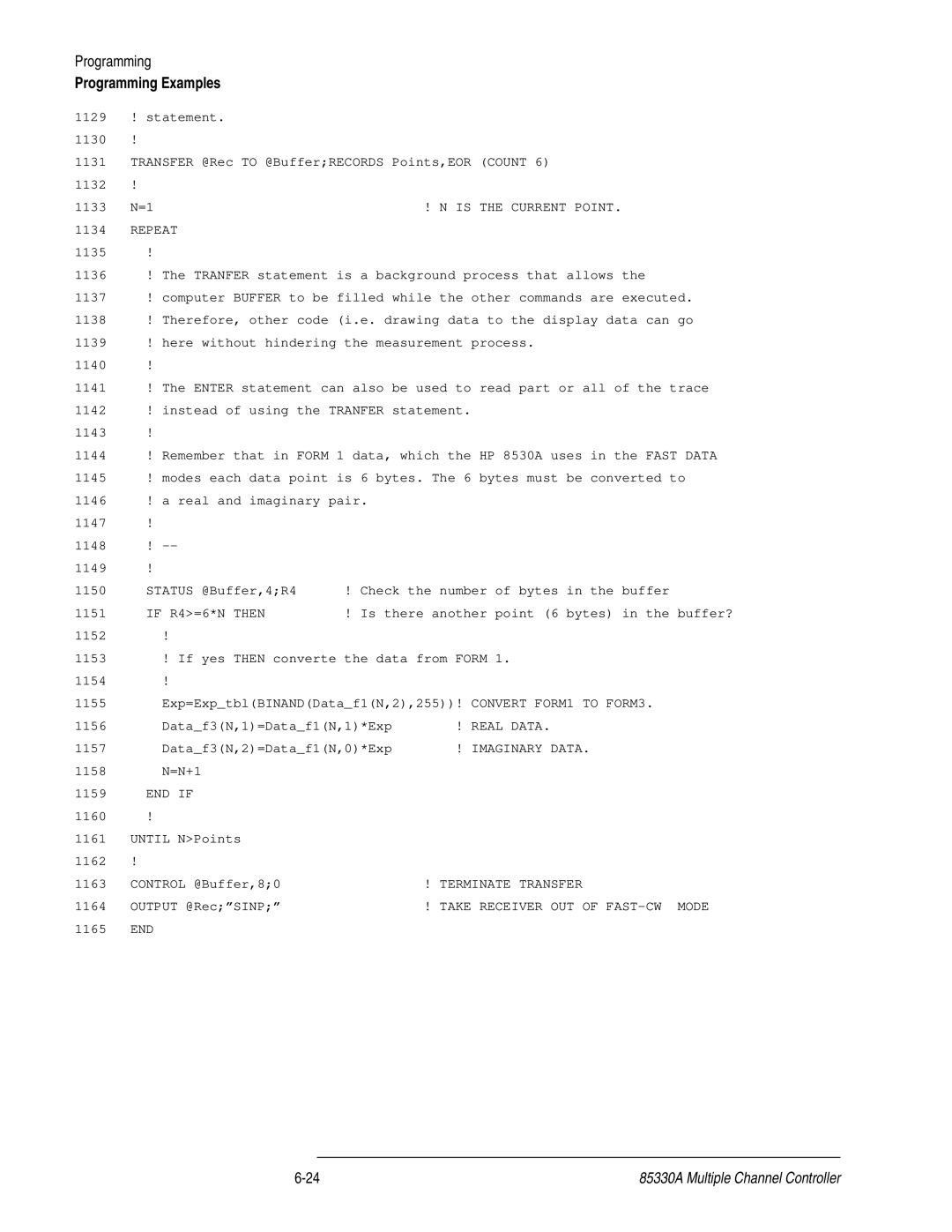Programming
Programming Examples
1129 | ! statement. |
|
|
1130 | ! |
|
|
1131 | TRANSFER @Rec TO @Buffer;RECORDS Points,EOR (COUNT 6) | ||
1132 | ! |
|
|
1133 | N=1 |
| ! N IS THE CURRENT POINT. |
1134 | REPEAT |
|
|
1135 | ! |
|
|
1136 | ! The TRANFER statement is a background process that allows the | ||
1137 | ! computer BUFFER to be filled while the other commands are executed. | ||
1138 | ! Therefore, other code (i.e. drawing data to the display data can go | ||
1139 | ! here without hindering the measurement process. | ||
1140 | ! |
|
|
1141 | ! The ENTER statement can also be used to read part or all of the trace | ||
1142 | ! instead of using the TRANFER statement. | ||
1143 | ! |
|
|
1144 | ! Remember that in FORM 1 data, which the HP 8530A uses in the FAST DATA | ||
1145 | ! modes each data point is 6 bytes. The 6 bytes must be converted to | ||
1146 | ! a real and imaginary pair. |
| |
1147 | ! |
|
|
1148 | ! |
|
|
1149 | ! |
|
|
1150 | STATUS @Buffer,4;R4 | ! Check the number of bytes in the buffer | |
1151 | IF R4>=6*N THEN | ! Is there another point (6 bytes) in the buffer? | |
1152 | ! |
|
|
1153 | ! If yes THEN converte the data from FORM 1. | ||
1154 | ! |
|
|
1155 | Exp=Exp_tbl(BINAND(Data_f1(N,2),255))! CONVERT FORM1 TO FORM3. | ||
1156 | Data_f3(N,1)=Data_f1(N,1)*Exp | ! REAL DATA. | |
1157 | Data_f3(N,2)=Data_f1(N,0)*Exp | ! IMAGINARY DATA. | |
1158 | N=N+1 |
|
|
1159 | END IF |
|
|
1160 | ! |
|
|
1161 | UNTIL N>Points |
|
|
1162 | ! |
|
|
1163 | CONTROL @Buffer,8;0 |
| ! TERMINATE TRANSFER |
1164 | OUTPUT @Rec;”SINP;” |
| ! TAKE RECEIVER OUT OF |
1165 | END |
|
|
85330A Multiple Channel Controller |
